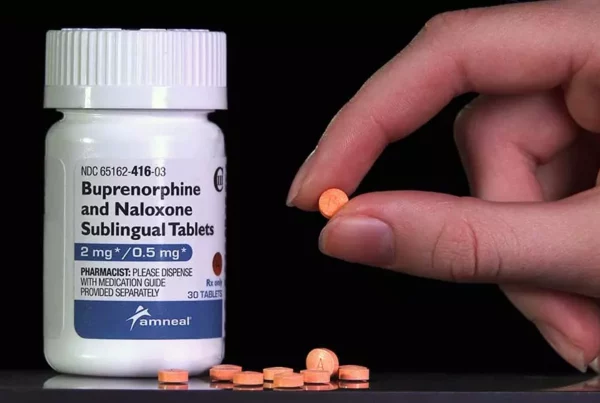Got a burning question about Suboxone and how long does Suboxone stay in your system? Well, you’re not alone! If you or someone you know is tackling opioid addiction and undergoing Suboxone treatment, it’s natural to wonder about its duration in your system. Suboxone is a popular medication prescribed to help folks deal with opioid dependence and those pesky withdrawal symptoms. In this detailed guide, we’ll break it down for you, covering all the important stuff. We’ll help you understand how long does Suboxone stay in your system and what factors influence that. We’ll also explain the various types of drug tests used to detect Suboxone and provide you with straightforward information to increase your knowledge about this medication and its effects. So, Lets not waste any time and kick off our journey right away!
An Overview of Suboxone
While Suboxone is a powerful medication developed to help individuals who are grappling with opioid addiction, there are rising queries around the town about how long does Suboxone stay in your system. Suboxone got two important components: buprenorphine and naloxone. Buprenorphine helps with cravings and withdrawal, while naloxone makes sure things don’t go out of control. You can’t just take Suboxone on your own. It’s meant to be part of a bigger treatment plan, under the watchful eye of a doctor. The amount of time Suboxone sticks around in your blood varies depending on stuff like your metabolism, liver function, dosage, and how you take it. So, it’s super important to have an open discussion with your doctor and follow their advice.
How Long Does Suboxone Stay in Your System and Factors Effecting It
Half-Life of Suboxone
Suboxone has two important ingredients: buprenorphine and naloxone. Buprenorphine hangs around in your body for a pretty long time compared to other drugs. It takes about 37 hours for half of a dose to leave your system. On the other hand, naloxone doesn’t stick around as long. It only lasts for about 1-2 hours. So, when you put them together, it can take around seven to nine days for Suboxone to completely leave your body and not show up in drug tests. But keep in mind that the exact time varies depending on different factors that are unique to each person.
Dosage and Duration of Use
If you’re wondering how long does Suboxone stay in your system it actually depends on how long you’ve been taking it. If you’ve been using it for a while, it’ll take longer for it to leave your system. But if you’ve only used it for a short period, it won’t stick around for too long and won’t show up in drug tests once it’s gone. So, remember to think about how much time you spend taking the medicine because it affects how long it stays in your body.
Metabolism
When your body processes Suboxone, the liver creates buprenorphine metabolites. These metabolites can stick around in your body even longer than the actual drug. If your liver is healthy, it might take less time for these metabolites to leave your system. But if your liver isn’t working well, it can take up to two weeks for the drug to clear out. A few things can affect how fast your body processes Suboxone, like your age, overall health, hydration levels, liver and kidney function, and even your genes. So, these factors influence how long Suboxone stays in your body.
Different Drug Tests for Detecting Suboxone
Urine Test
When it comes to testing for Suboxone, urine tests are often used. If you’ve recently taken Suboxone, a special test called a BUP drug test can detect buprenorphine in your urine in as little as 40 minutes after use. Moreover, if you’ve been taking Suboxone for a while, it still shows up in a urine drug test up to two weeks later. So, keep in mind that urine tests can catch Suboxone use, both for short-term and long-term users.
Blood Test
It usually takes around five half-life cycles to completely get rid of a drug from your body. Once you reach that point, there’s only about 3% or even less of the drug left in your blood. So, when you go for a blood test to find out if you’ve taken Suboxone, the test looks for the presence of those drugs in your blood. However, the detection time for Suboxone in the blood is usually shorter compared to urine tests.
Saliva Test
Saliva tests actually detect Suboxone in your body pretty quickly. Like within just 10-30 minutes after you take it! Also, it can stay detectable in your saliva for around 2-3 days. However, the length of time Suboxone hangs around in your saliva depends on how you take it. If you put it under your tongue, it sticks around in your saliva for a lot longer compared to if you get an injection directly into your veins. Saliva tests aren’t as commonly used as urine or blood tests, but they might be used in specific situations.
Hair Follicle Test
When it comes to drug tests, hair follicle tests are the ones that detect Suboxone for the longest time. Believe it or not, Suboxone can be detected in your hair follicles for up to a whopping 90 days after you last used it. That’s a really long time! But, hair follicle tests aren’t the most common type of drug test used for regular situations. They’re usually done for special cases or more detailed investigations.
The Bottom Line
Understanding how long Suboxone stays in your system is super important for a bunch of reasons. It helps figure out the right dosage, keeps tabs on potential drug interactions, and makes sure you’re following any drug testing requirements you might have. Moreover, the length of time Suboxone stays in your system can be different for everyone. It depends on things like how much you take, how long you’ve been taking it, your metabolism, and even the type of drug test being used.
If you have any questions or concerns about Suboxone and how it affects your body, including how does Suboxone work, the best thing to do is consult with a healthcare professional. They can give you personalized advice and support based on your unique situation. Remember, Suboxone is a valuable tool in treating opioid dependence when used as directed by a healthcare pro. So, understanding its effects and how long it sticks around helps you make informed choices.



